Gustav Mahler, Rafael Kubelik, Dietrich FischerDieskau, SymphonieOrchester Des Bayerischen Rundfunks - Symphony No 1
Album: Symphony No 1
Table of Contents
Download
Filename: gustav-mahler-rafael-kubelik-dietrich-fischerdieskau.rar- MP3 size: 34 mb
- FLAC size: 331 mb
Tracks
| Track | Duration | Preview |
|---|---|---|
| Symphony No.1 in D Major | ||
| 1. Langsam. Schleppend. Wie ein Naturland | 14:31 | |
| 4. Stürmisch Bewegt | 17:40 | |
| 2. Kräftig Bewegt, Doch Nicht Zu Schnell. Trio. Recht Gemächlich | 6:56 | |
| 3. Feierlich Und Gemessen, Ohne Zu Schleppen | 10:37 | |
| 1. Wenn Mein Schatz Hochzeit Macht | 3:54 | |
| 2. Ging Heut' Morgen übers Feld | 4:00 | |
| 3. Ich Hab' Ein Glühend Messer | 3:12 | |
| Lieder Eines Fahrenden Gesellen (Songs of a Wayfarer) | ||
| 4. Die Zwei Blauen Augen | 5:10 |
Images
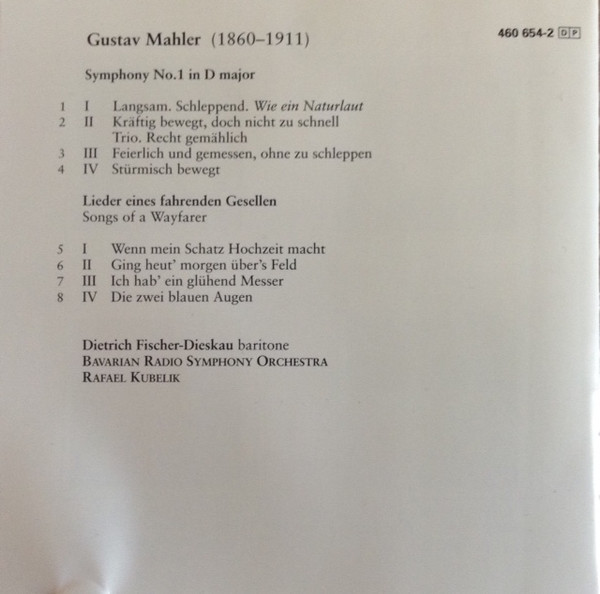
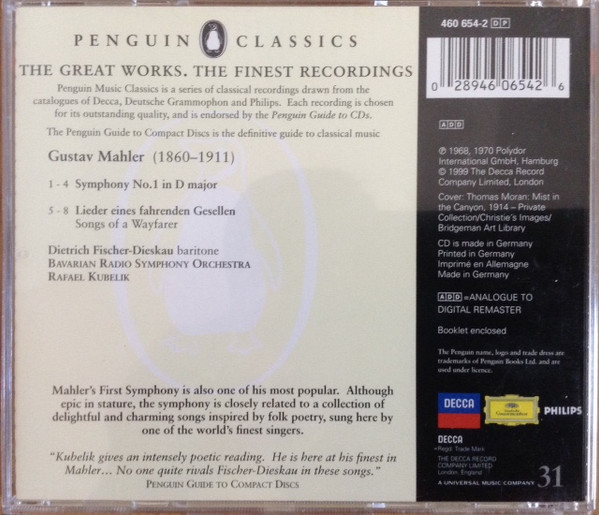
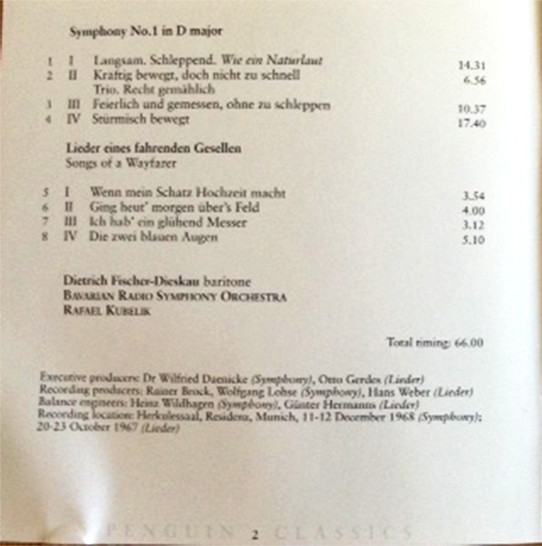
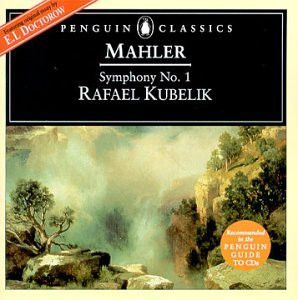
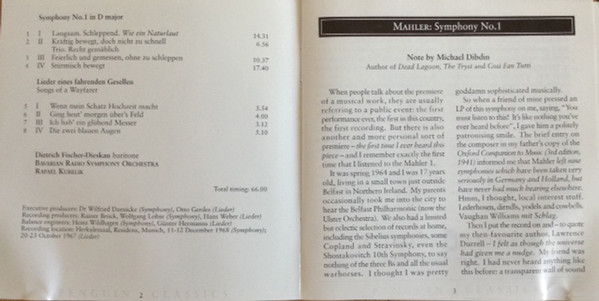
Catalog Numbers
460 654-2Labels
DeccaListen online
- escuchar en línea
- écouter en ligne
- ascolta in linea
- lyssna på nätet
- ouvir online
- online luisteren
- online anhören
- lytte på nettet
- kuunnella verkossa
Formats
- CD
- Compilation
- Reissue
- Remastered
Companies
| Role | Company |
|---|---|
| Copyright (c) | Deutsche Grammophon GmbH |
| Recorded At | Herkulessaal, München |
Credits
| Role | Credit |
|---|---|
| Conductor | Rafael Kubelik |
| Engineer | Günter Hermanns (tracks: 5-8), Heinz Wildhagen (tracks: 1-4) |
| Executive-Producer | Dr. Wilfried Daenicke (tracks: 1-4), Otto Gerdes (tracks: 5-8) |
| Liner Notes | Michael Dibdin |
| Orchestra | Symphonie-Orchester Des Bayerischen Rundfunks |
| Producer | Hans Weber (tracks: 5-8), Rainer Brock (tracks: 1-4), Wolfgang Lohse (tracks: 1-4) |
Notes
- Recording location: Herkulessaal, Residenz, Munich, 11-12 December 1968 (Symphony); 20-23 Ocotober 1967 (Lieder)
- Although, when referring to the Lieder, the (p) of the other versions of this cd indicates 1970 (rather than 1967), these seem to be the same recordings - they are just differently indicated in the booklets and this version seems to be more specific about recording dates.
Barcodes
Barcode (Printed): 0 28946 06542 6About Gustav Mahler, Rafael Kubelik, Dietrich FischerDieskau, SymphonieOrchester Des Bayerischen Rundfunks
Austrian composer and conductor.
Born 7 July 1860 in Kalischt, Bohemia (today Kaliště, Czech Republic) and died 18 May 1911 in Vienna, Austria.
Gustav Mahler (German pronunciation: ; was a late-Romantic Austrian-Bohemian composer and one of the leading conductors of his generation. As a composer, he acted as a bridge between the 19th century Austro-German tradition and the modernism of the early 20th century. While in his lifetime his status as a conductor was established beyond question, his own music gained wide popularity only after periods of relative neglect which included a ban on its performance in much of Europe during the Nazi era. After 1945 the music was discovered and championed by a new generation of listeners; Mahler then became one of the most frequently performed and recorded of all composers, a position he has sustained into the 21st century.
Born in humble circumstances, Mahler showed his musical gifts at an early age. After graduating from the Vienna Conservatory in 1878, he held a succession of conducting posts of rising importance in the opera houses of Europe, culminating in his appointment in 1897 as director of the Vienna Court Opera (Hofoper). During his ten years in Vienna, Mahlerwho had converted to Catholicism from Judaism to secure the postexperienced regular opposition and hostility from the anti-Semitic press. Nevertheless, his innovative productions and insistence on the highest performance standards ensured his reputation as one of the greatest of opera conductors, particularly as an interpreter of the stage works of and . Late in his life he was briefly director of New York's and .
He wed fellow composer and musician on 9 March 1902. They had two daughters, Maria Anna Mahler (03.11.1902-05.07.1907) & .
Mahler's œuvre is relatively smallfor much of his life composing was a part-time activity, secondary to conductingand is confined to the genres of symphony and song, except for one piano quartet. Most of his ten symphonies are very large-scale works, several of which employ soloists and choirs in addition to augmented orchestral forces. These works were often controversial when first performed, and were slow to receive critical and popular approval; an exception was the triumphant premiere of his Eighth Symphony in 1910. Mahler's immediate musical successors were the composers of the Second Viennese School, notably , and . and are among later 20th-century composers who admired and were influenced by Mahler. The International Gustav Mahler Institute was established in 1955, to honour the composer's life and work.
Real Name
- Gustav Mahler
Name Vars
- Fauré
- G. Mahler
- G. Meler
- G.Mahler
- Gustav
- Gustave Mahler
- Maher
- Mahler
- Mahler G.
- Mahler Gustav
- Mahler, Gustav
- Malher
- Marhler
- Μάλερ
- Г. Малер
- Г.Малер
- Густав Малер
- Малер
- °¹¿ÕûÞüéü
- Þüéü